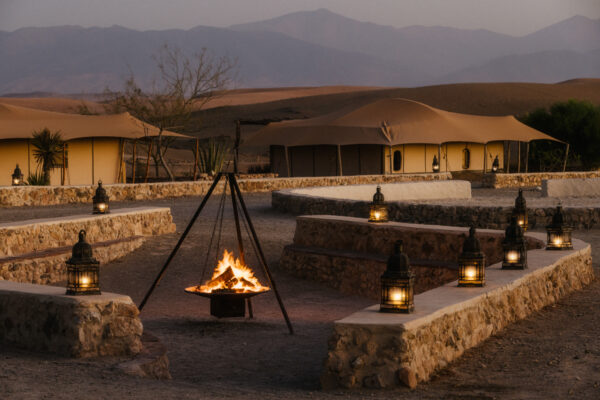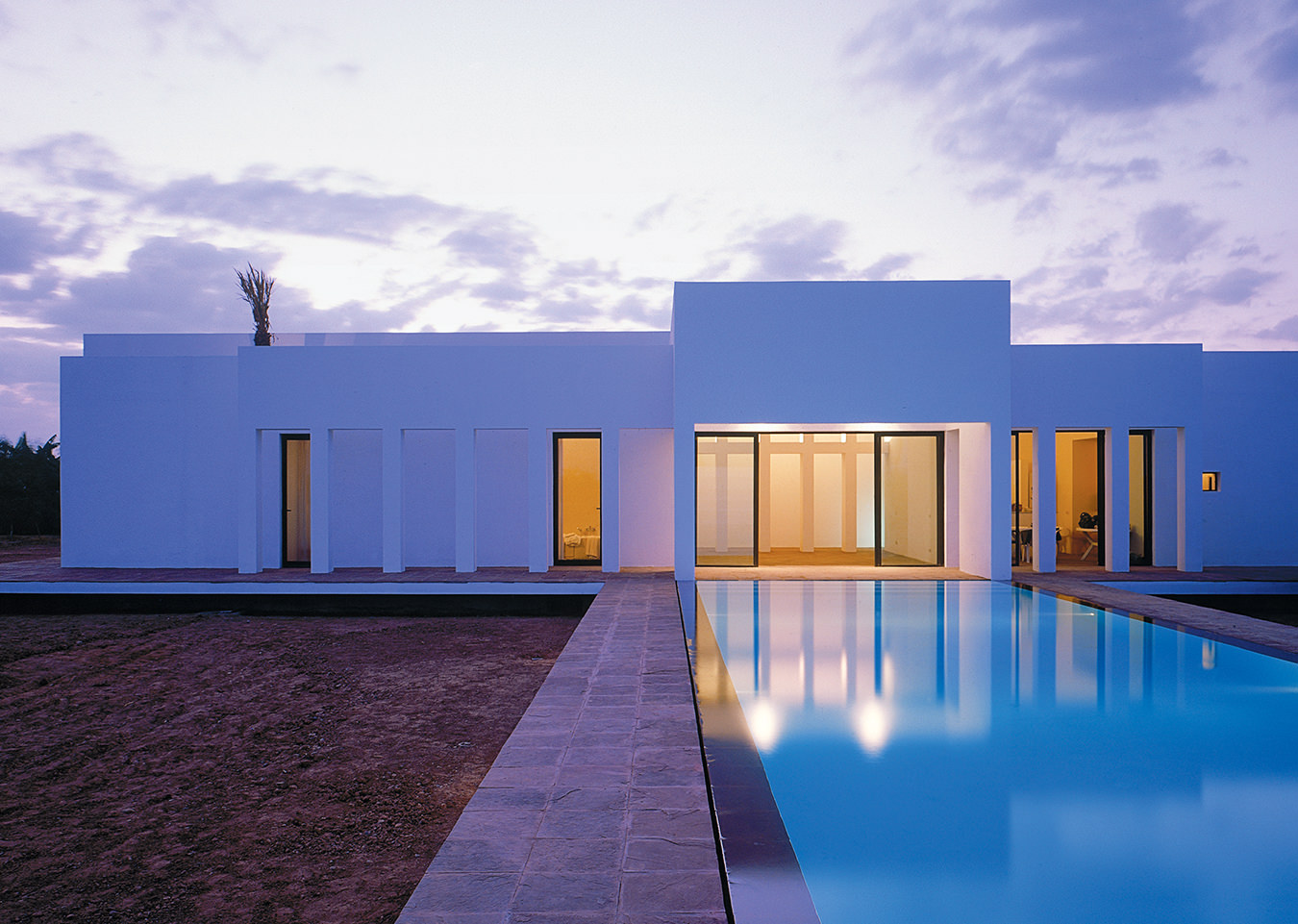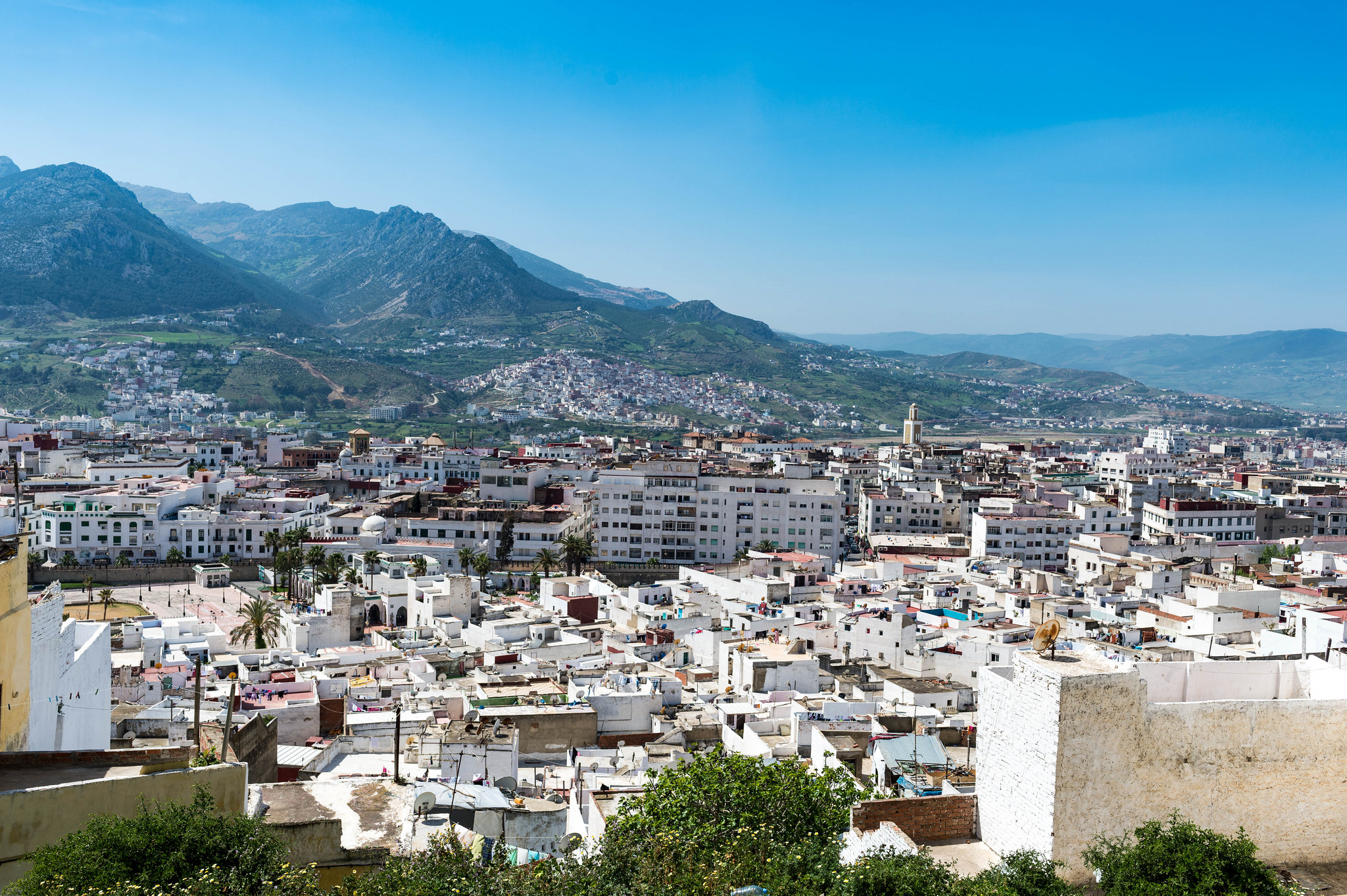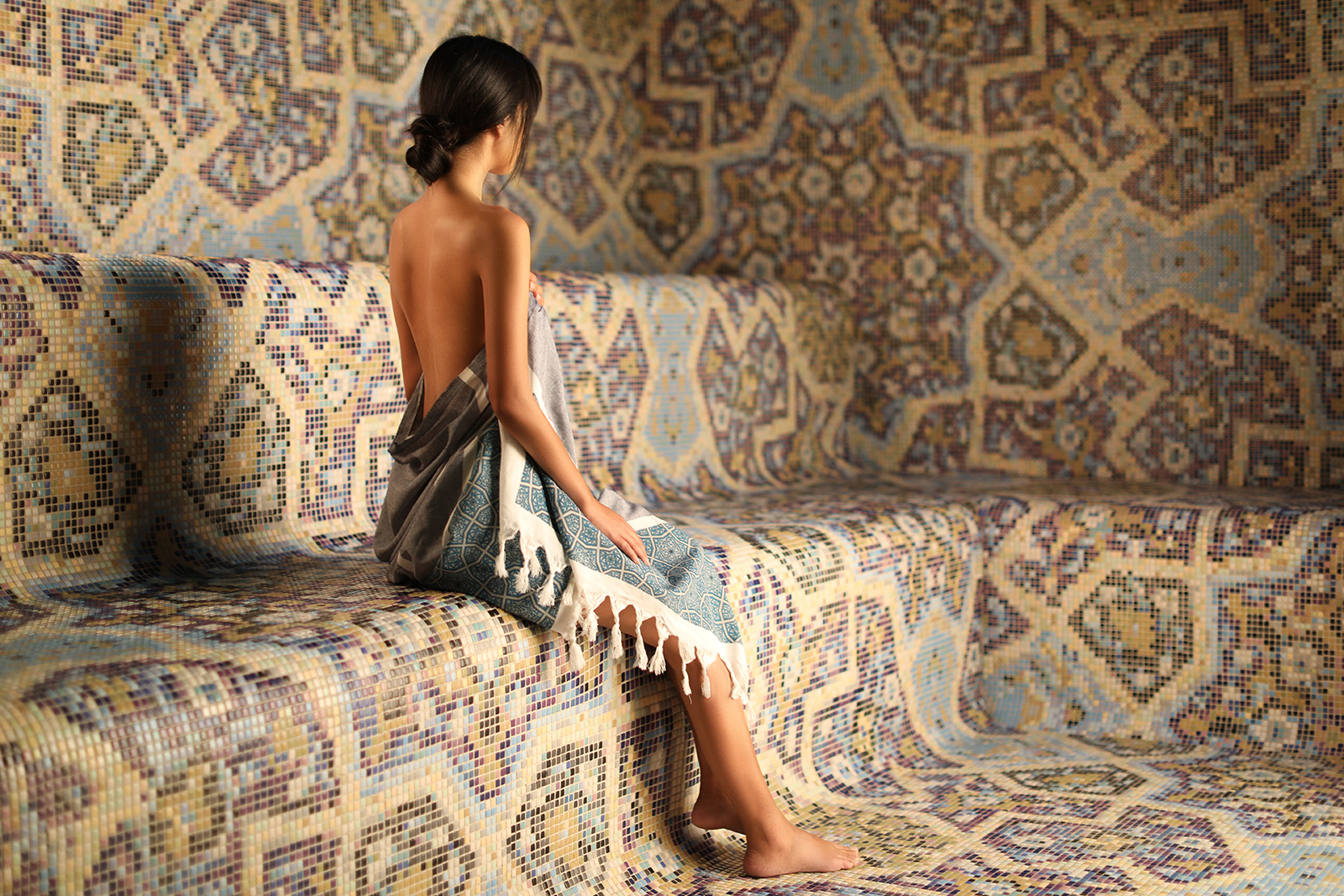Embracing the Desert at Caravan Agafay in Morocco
At Habitas’s outpost in the Agafay desert, discover grounding rituals and a renewed connection to the natural world.
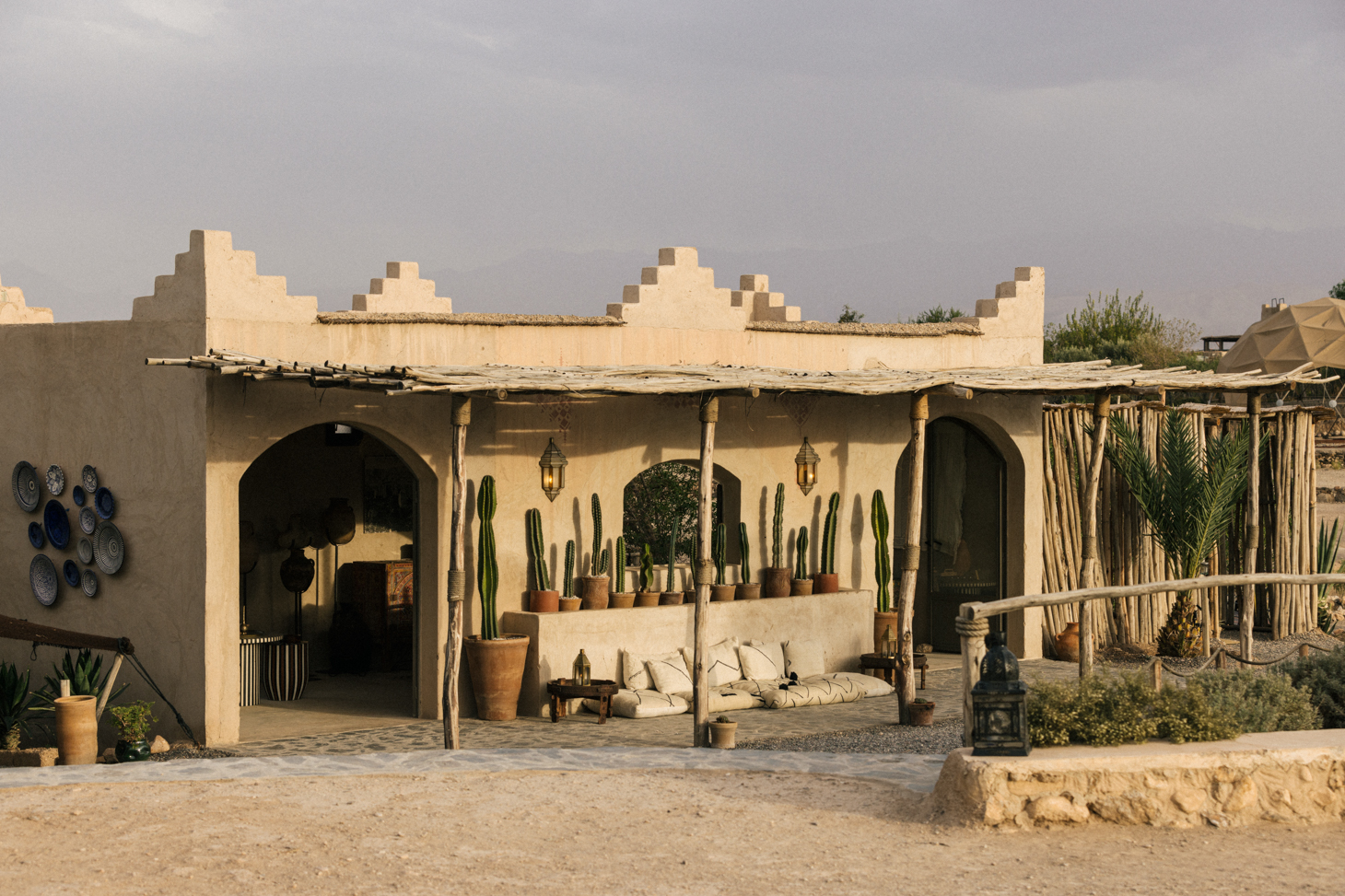
The smoke wraps the terrace in a warm, woodsy cloud. A moment later, a gust of dry desert wind blows in off the dunes, carrying the heady plumes of incense away. At Caravan Agafay, Habitas’s outpost in Morocco’s Agafay desert, a ritual welcome ceremony sets the tone when travellers arrive. Tiny citron gems of salabane, a tree resin found in North Africa similar to copal or frankincense, are sprinkled over smouldering charcoal to clear stagnant or negative energy. Next, a pinch of black cumin or pepper—chosen from myriad tiny dishes of seeds and herbs—is added to a small clay pot of dark, loamy soil.
Just 45 minutes outside Marrakesh, travellers and locals alike flock to the Agafay desert to escape the din of the city, the low profiles of bronze, flat-roofed buildings morphing into rolling rocky dunes. But the desert as a place of transformation and healing is ancient. The landscape appears in religious books as a stage for prayer and penance, and pilgrims across the centuries have braved the inhospitable terrain to reach holy cities or confront an inner reckoning or revelation. There’s something cleansing about the desert’s austere plains, its dry heat, and the searing sunlight that knifes through the floor-to-ceiling windows of the camp’s sumptuous tents in the morning.
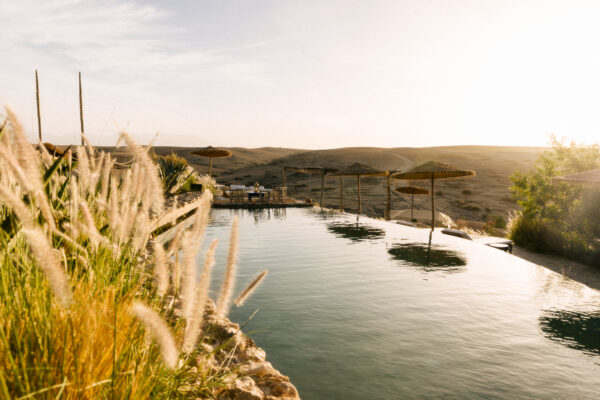
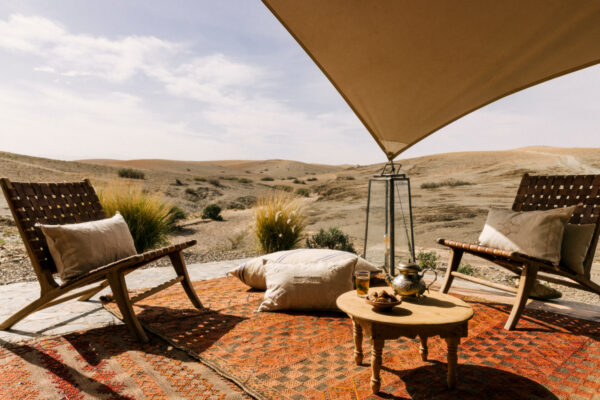
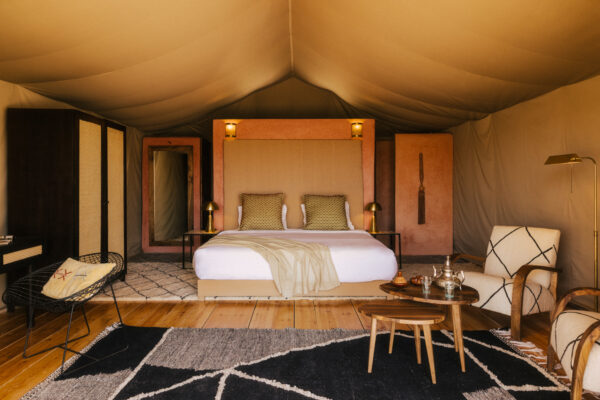
This connection to the natural world is central to Caravan Agafay’s approach to wellness, which the camp’s resident yoga teacher, Johanna Burkart, weaves into yoga and meditation. During a candlelit full moon ceremony, stained-glass lamps swinging from the ceiling throw a prismatic glow across kilim carpets. “As an earth sign, the full moon in Virgo invites us to ground ourselves and consider where we might need less or more order in our lives,” Burkart explains during the seated meditation session.
Under brilliant morning sunshine, guests can pluck zucchini and carrots from the camp’s organic garden. Chef and garden manager Lahcen Essadik leads visitors through the Edenic grounds studded with orange, argan, and olive trees, where everything from kale and turnips to rosemary and lavender sprout up through the soil. “We call it the garden of good intentions because it’s here to nourish us and our guests,” Essadik says.
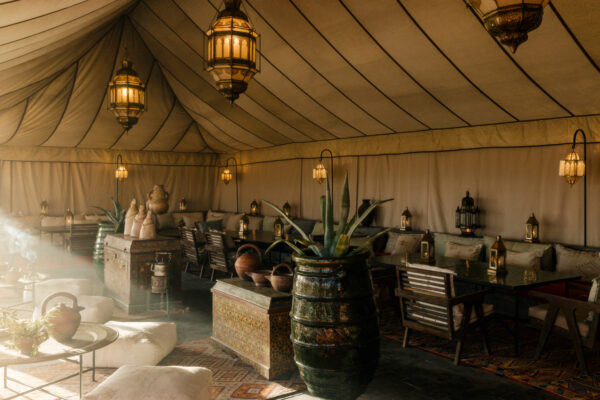
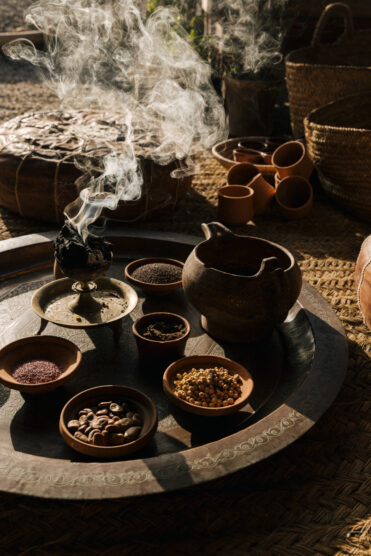
The freshly gathered herbs and vegetables are used in a cooking class under an open-air Amazigh tent modelled after the traditional dwellings of North Africa’s Indigenous peoples. Chef Rachida oversees lemon chicken tagine, chopping vegetables, seasoning meat with saffron, ginger, turmeric, and cumin, and adding dashes of olive oil and water along the way. The conical earthenware is then placed over a bed of coals to slow cook. The citrusy, smoky flavours are savoured during lunch on the restaurant terrace with a side of warm bread. And in the evenings, fresh garden rosemary and mint are muddled into cocktails as the tangerine sun sets over the dunes.
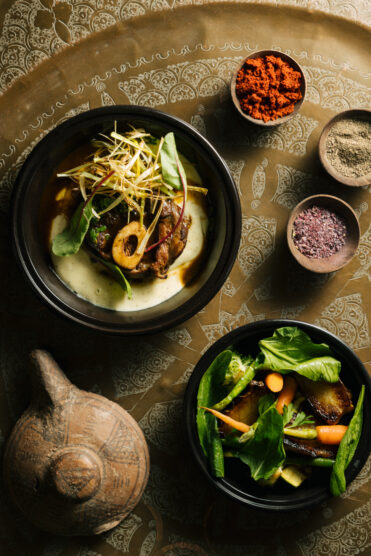
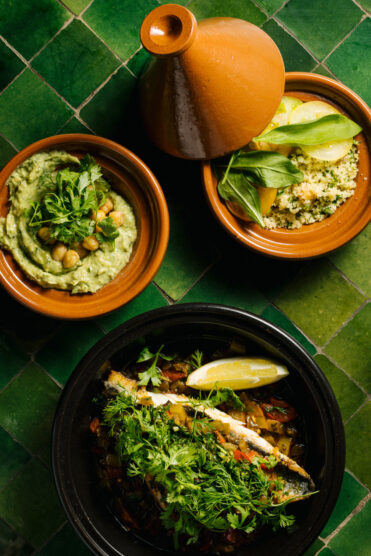
It’s not just guests who benefit from the warming sun, garden-fresh food, and green spaces here. The camp is home to a menagerie of animals, including bleating goats, squawking chickens, and a family of donkeys. A gentle, doe-eyed three-month-old donkey, Tibari, greets guests each morning over coffee, devouring the sugar cubes offered to him.
While the camp offers traditional Moroccan wellness treatments like argan oil massages, it’s the connection with the natural world and a renewed awareness of the senses that are the most rejuvenating. The warm desert sun and wind, the taste of lemon, and the scent of orange trees linger.
